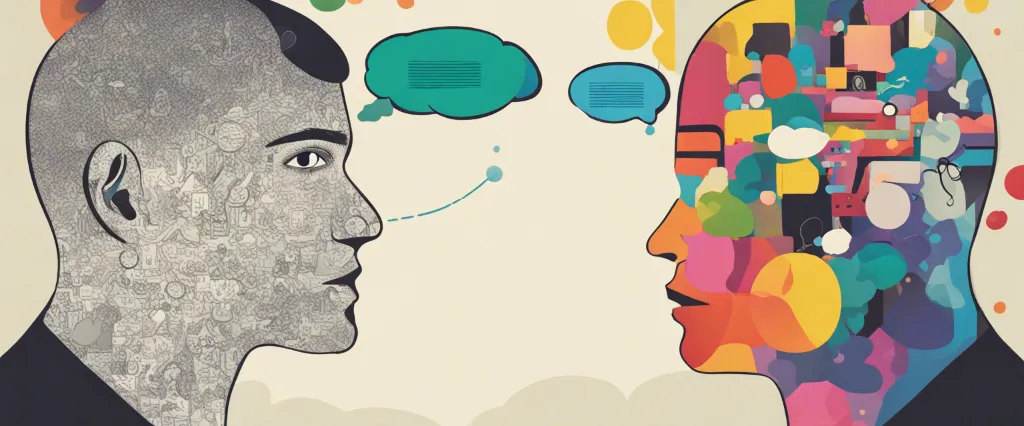
In a world that often seems overwhelmed by negativity and discontent, the quest for true happiness and fulfillment has become more important than ever. Many individuals find themselves grappling with the constant barrage of complaints and dissatisfaction, longing for a more peaceful and contented existence. Two books, “A Complaint-Free World” by Will Bowen and “The Art of the Good Life” by Rolf Dobelli, delve into this very notion, offering unique approaches and valuable insights on the path towards a life of greater satisfaction.
In “A Complaint-Free World,” Will Bowen challenges readers to embark on a fascinating journey of self-awareness and personal transformation. Through his innovative 21-day complaint-free challenge, Bowen reveals the power of words, demonstrating how our language shapes our perception of the world and our experience within it. He exposes the harmful effects of complaining, an act which has become all too common in our everyday lives, and proposes a simple yet profound solution – to eradicate complaining altogether.
On the other hand, Rolf Dobelli’s “The Art of the Good Life” takes a broader perspective, drawing from various disciplines and philosophical principles to craft a comprehensive guide to living a more fulfilling life. Dobelli explores the fundamental question of what constitutes a good life and offers valuable insights derived from his own experiences and encounters with the wisdom of thinkers from ancient times to the present day. From the art of decision-making to the pursuit of happiness, Dobelli shares practical tools and thought-provoking concepts to help readers cultivate a more meaningful and purposeful existence.
While both books explore the theme of finding contentment amidst a world rife with turmoil and dissatisfaction, they approach the subject from different angles. Bowen’s “A Complaint-Free World” centers on practical steps to eliminate complaining, placing emphasis on the power of language and positive communication. In contrast, Dobelli’s “The Art of the Good Life” delves into the broader aspects of well-being and the psychological underpinnings of happiness, guiding readers towards a compelling vision of a flourishing life.
Through this comparative study, we aim to examine the unique perspectives and methodologies presented in these two books, exploring the commonalities and divergences that exist within their wisdom. By delving into the principles outlined in “A Complaint-Free World” and “The Art of the Good Life,” we hope to shed light on the multitude of approaches available to individuals seeking a more satisfying and purposeful existence. Only by exploring the depths of these philosophies can we truly begin to untangle the complexities of our modern world and strive towards a life of genuine contentment and fulfillment.
Brief Summary of Two Books
A Complaint Free World by Will Bowen
A Complaint-Free World by Will Bowen is a compelling self-help book that challenges readers to break free from the habit of complaining. Bowen’s central premise is that complaining is a negative and unproductive behavior that not only affects individuals’ happiness but also has a broader impact on society as a whole.
The book begins by exploring the detrimental effects of complaining, both mentally and physically. Bowen explains how complaining rewires our brain to focus on the negative aspects of life, leading to increased stress and a general sense of dissatisfaction. He then introduces his Complaint-Free Challenge, which involves wearing a purple bracelet and committing to refraining from complaining for 21 consecutive days.
Bowen delves into the psychology behind why people complain and offers strategies to help readers shift their perspective from complaint to gratitude. He emphasizes the importance of taking responsibility for one’s own thoughts and actions, suggesting practices such as gratitude journaling and positive affirmations to rewire the brain to focus on the positive aspects of life. The author also highlights the significance of mindfulness and self-awareness in breaking the habit of complaining.
Throughout the book, Bowen shares inspirational stories and examples of individuals who have successfully completed the Complaint-Free Challenge and experienced transformative changes in their lives. He also addresses common obstacles and provides practical tips to help readers overcome them, such as surrounding oneself with positive influences and learning to communicate effectively.
In conclusion, A Complaint-Free World is a powerful book that challenges readers to reevaluate their mindset and habits. By taking the Complaint-Free Challenge, readers can learn to shift their focus from complaining to gratitude, ultimately leading to a happier and more fulfilling life.
The Art of the Good Life by Rolf Dobelli
The Art of the Good Life” by Rolf Dobelli is a practical guide that explores the principles and ideas necessary to lead a fulfilling and prosperous life. Dobelli draws on various fields such as psychology, philosophy, and economics to offer valuable insights and strategies for making better choices and improving one’s overall well-being.
The book begins by debunking common misconceptions and cognitive biases that often hinder our decision-making processes. Dobelli emphasizes the importance of being aware of these biases and suggests adopting a more rational approach to decision making.
Throughout the book, Dobelli introduces ideas and practices that can help individuals navigate the complexities of modern life. He emphasizes the significance of cultivating mental habits such as critical thinking, curiosity, and open-mindedness. By doing so, readers can better understand their own values, priorities, and desires, leading to more intentional and fulfilling choices.
Dobelli also addresses subjects like happiness, wealth, relationships, and self-improvement, providing practical advice on how to approach these areas of life in order to attain genuine contentment and success. He encourages readers to define their own personal metrics of success rather than simply conforming to societal expectations or following trends.
Moreover, the book explores the importance of self-reflection, mindfulness, and the ability to adapt and embrace change. Dobelli stresses the significance of finding balance and avoiding excessive busyness or mindless consumerism, instead promoting an attitude of gratitude and an appreciation for simplicity and autonomy.
Overall, “The Art of the Good Life” offers a comprehensive guide to making better decisions and leading a more fulfilling life. The principles and strategies discussed by Dobelli are grounded in research and practical wisdom, empowering readers to take control of their lives, find happiness, and achieve a sense of well-being.
Comparison between Two Books

Similarities in Positive Thinking
Both “A Complaint Free World” by Will Bowen and “The Art of the Good Life” by Rolf Dobelli emphasize the concept of positive thinking and its transformative power in our lives.
1. Change in Perspective: Both books stress the importance of shifting our perspective and adopting a positive mindset. They highlight that our thoughts shape our reality, and by choosing to focus on the positive aspects of life, we can improve our overall well-being.
2. Mindfulness and Awareness: Both authors emphasize the importance of being aware of our thoughts and choosing to cultivate positive ones. Bowen and Dobelli emphasize the need for mindfulness and self-reflection to recognize negative patterns and reframe them into positive thoughts.
3. Gratitude: Both books advocate for cultivating an attitude of gratitude. By appreciating what we have, both authors suggest that we can enhance our positive thinking. Bowen and Dobelli emphasize practicing gratitude as a way to shift our focus from complaints or negativity towards the abundance in our lives.
4. Self-Talk: Both authors address the significance of our inner dialogue. They stress the importance of replacing negative self-talk with positive affirmations. By consciously choosing our words and thoughts, we can rewire our minds towards a more positive outlook.
5. Taking Responsibility: Both books suggest that positive thinking includes taking personal responsibility for our thoughts and emotions. Bowen and Dobelli emphasize that we have the power to choose how we react to situations and that positive thinking comes from a place of personal accountability.
6. Mindset Shifts: Lastly, both books highlight the need for shifting our mindset from negativity to positivity. They encourage readers to let go of complaints, focus on solutions rather than problems, and embrace a more optimistic outlook on life.
Overall, both “A Complaint Free World” and “The Art of the Good Life” stress the transformative power of positive thinking. They provide practical strategies and insights to help individuals cultivate a more positive mindset, leading to a happier and more fulfilling life.
Divergences in Positive Thinking
Both “A Complaint Free World” by Will Bowen and “The Art of the Good Life” by Rolf Dobelli aim to guide readers towards a happier and more fulfilling life. However, when it comes to the concept of positive thinking, these books diverge in their approach and emphasis.
Will Bowen’s “A Complaint Free World” places a significant emphasis on the power of positive thinking. The author believes that our thoughts and words have a profound impact on our lives and that eliminating complaints and negative thinking can transform our reality. Bowen introduces the concept of the “complaint-free challenge,” wherein individuals are encouraged to refrain from complaining for 21 consecutive days. By focusing on positive thoughts and eliminating negativity, he believes that readers can shift their mindset and ultimately attract more positive experiences into their lives.
On the other hand, Rolf Dobelli’s “The Art of the Good Life” takes a more nuanced approach towards positive thinking. While the author acknowledges the importance of optimism and positive thinking, he cautions against the dangers of excessive positivity. Dobelli argues that blind optimism can lead to complacency and unrealistic expectations, potentially hindering personal growth and achievement. Instead, he advocates for a rational approach to life, promoting critical thinking and a balanced perspective. Dobelli encourages readers to acknowledge and address challenges, rather than simply relying on positive thoughts to overcome them.
In summary, both books aim to guide readers towards a happier life, but they diverge in their views on positive thinking. Will Bowen’s “A Complaint Free World” advocates for the complete elimination of complaints and negative thinking, emphasizing the power of positive thoughts in attracting positive experiences. In contrast, Rolf Dobelli’s “The Art of the Good Life” promotes a more balanced perspective, cautioning against excessive optimism and encouraging critical thinking.

Conclusion
“A Complaint Free World” by Will Bowen is a self-help book that focuses on the concept of eliminating complaining from one’s life. It introduces the idea of the “complaint-free” challenge, where readers are encouraged to go 21 days without complaining, criticizing, or gossiping. The book also explores the impact of complaining on our health, relationships, and overall well-being.
“The Art of the Good Life” by Rolf Dobelli provides practical advice and insights on how to live a fulfilling and meaningful life. It draws upon various philosophical ideas and research findings to present strategies for achieving happiness, making better decisions, and finding balance in different areas of life. Dobelli provides a collection of bite-sized lessons and anecdotes to illustrate his points.
Both books have their own unique focuses and approaches to self-improvement. If you are interested in developing a more positive mindset and reducing negativity in your life, “A Complaint Free World” may be more relevant. On the other hand, if you are looking for broader advice on living a well-rounded and fulfilling life, “The Art of the Good Life” might be a better choice.
Ultimately, the worthiness of reading a book depends on your personal interests and goals. You might consider reading summaries or reviews of both books to determine which aligns more with what you are seeking in terms of personal development.


